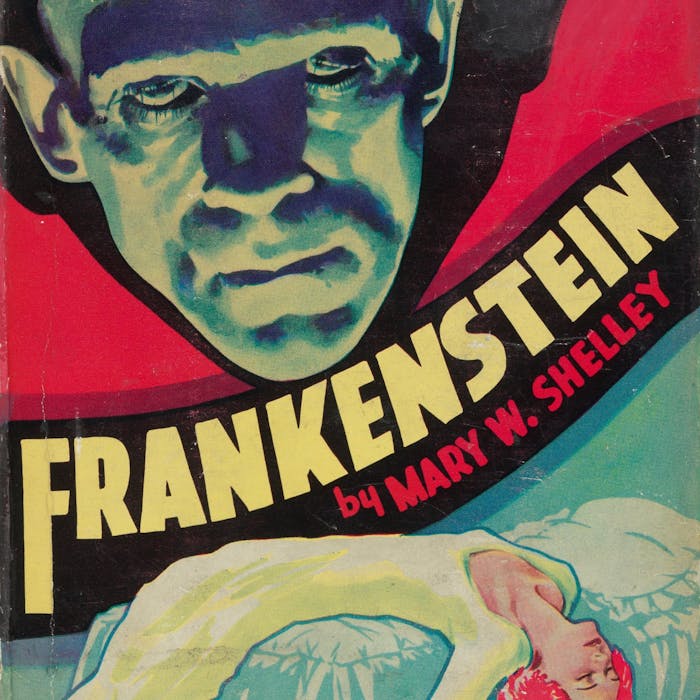
Frankenstein - the first Science Fiction novel?
"Frankenstein" or "The Modern Prometheus" is an 1818 novel written by English author Mary Shelley. It tells the story of Victor Frankenstein, a young scientist who creates a sapient creature in an unorthodox scientific experiment.
Though often considered a gothic horror novel, some have argued that Frankenstein should be considered the first Science Fiction novel, relying, as it does, on science, rather than magic, to propel the fantastical plot. This contrasts with the much later novel Dracula, by Bram Stoker, which uses European myth as the source of its monster.
As a Science Fiction novel, the story serves as an early warning that Man's scientific ingenuity might be leading him to release something monstrous upon the world - a common theme of the genre ever since.
Frankenstein creates a new living man (something that only God should do, perhaps), but becomes horrified by his Creature, which is hideous to behold, and fails to care for, teach or control him. The monster is shown to be intelligent and sensitive, but becomes savage when rejected and mistreated. The novel is infused with that most horrible and insistent of emotions: guilt.
Mary Shelley started writing the story when she was 18, and the first edition was published anonymously in London on 1st January 1818, when she was 20. Therefore, this is a remarkably early novel, written in the last years of the reign of George III, to take scientific experiments and advances as its inspiration.
Shelley had run away from her bohemian home with the young poet Percy Shelley (who later became her husband) at the age of 16. Together with her 15-year-old step-sister, Mary Shelley found herself moving through France and Switzerland with Percy Shelley, Lord Byron and other writers and thinkers. In this period there was much mutual fascination between poets and scientists. Galvanism (early electrical experiments that appeared to briefly reanimate dead animals) and occult ideas were topics of conversation among her companions. Mary Shelley had also given birth to, and lost, her first child. In 1816, Mary, Percy and Lord Byron had a competition to see who could write the best horror story. After thinking for days, Shelley was inspired to write Frankenstein.
Some initial reviews were poor, particularly since the subject matter was considered too grotesque to come from the female imagination. Despite these reviews, Frankenstein achieved an almost immediate popular success. It became widely known, especially through melodramatic theatrical adaptations—a trend that has continued via Hollywood to the present day.
Further reading
Links to external websites are not maintained by Bite Sized Britain. They are provided to give users access to additional information. Bite Sized Britain is not responsible for the content of these external websites.
